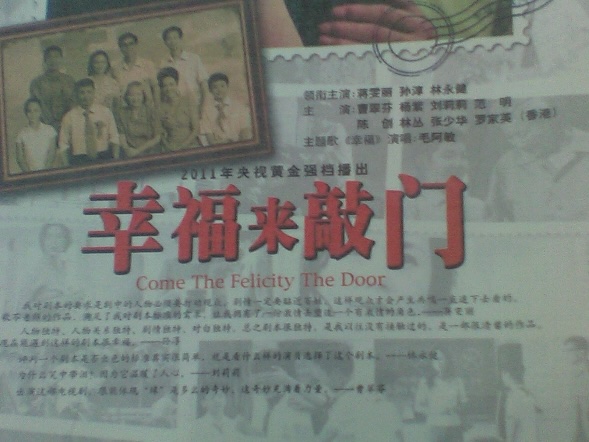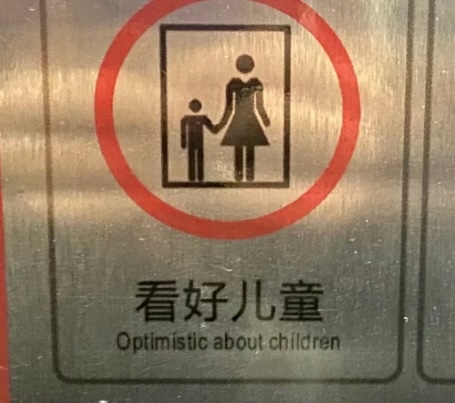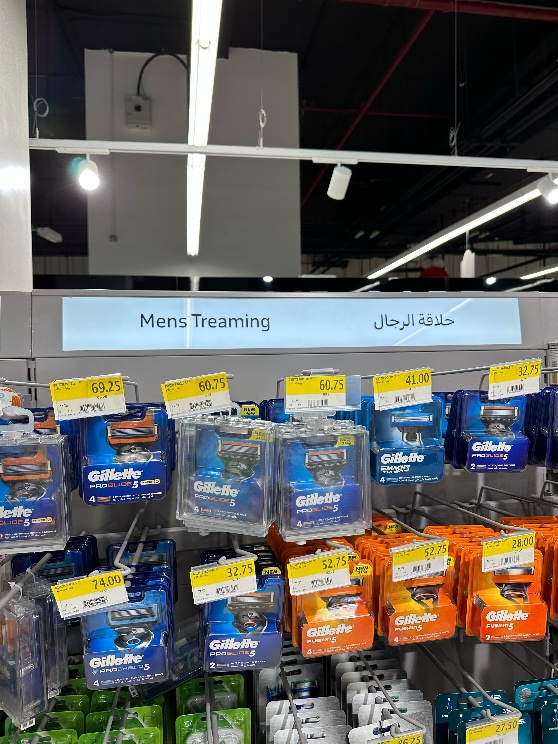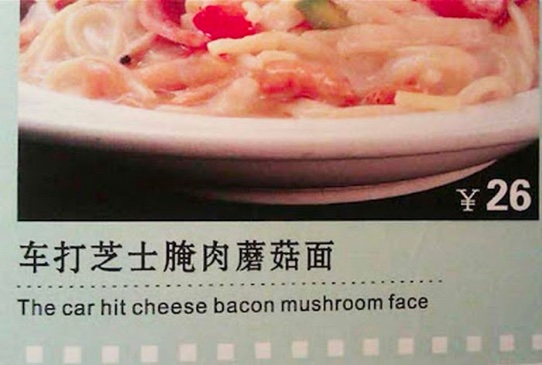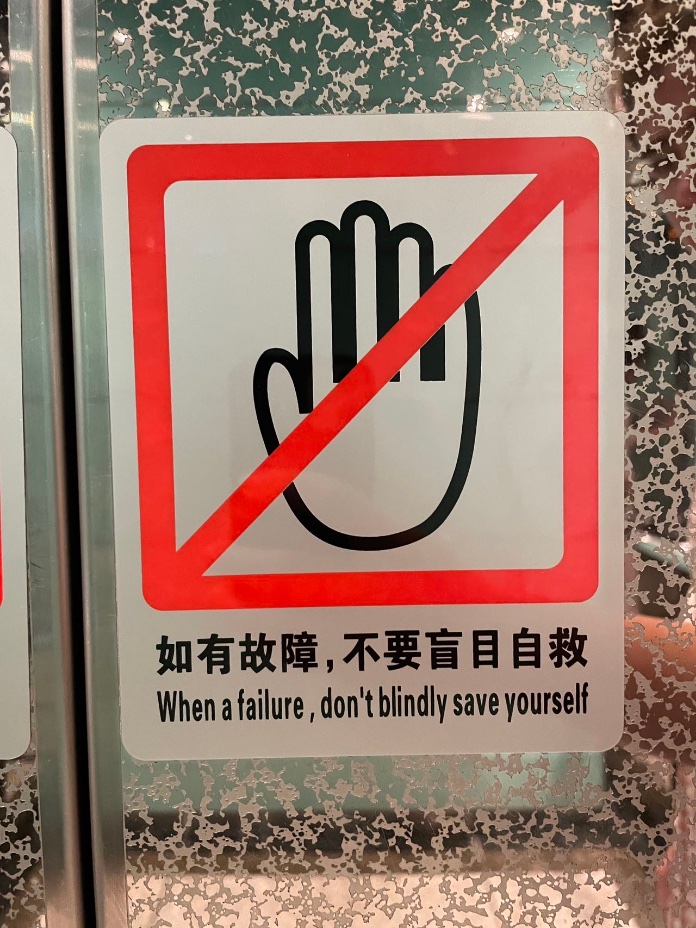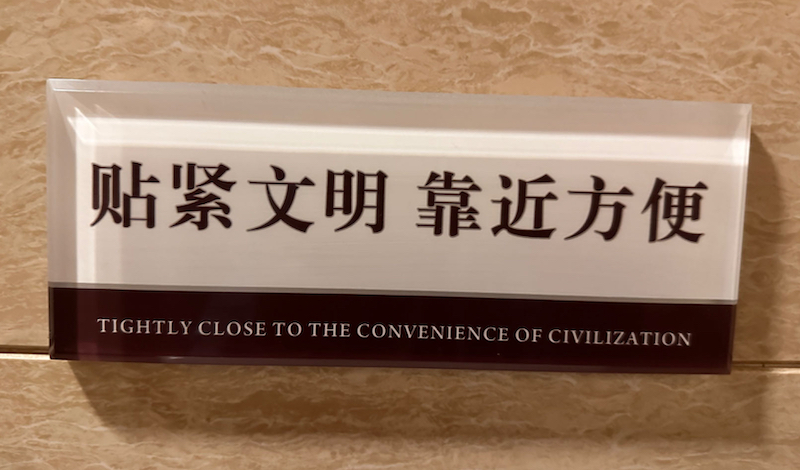Archive for Lost in translation
Chinese buzzwords for 2023
The Shanghai language and linguistics journal (some say it's a literary journal — I think it's none of these three "l's", but more of a sociopolitical magazine), Yaowen Jiaozi*, announced China's hottest words of the year.
Leading the list is the amazing term "xīnzhì shēngchǎnlì 新质生产力" ("new quality productivity"). Naturally, it was coined by President Xi Jinping.
[It] captures a key shift in the nation's economic characters. This concept represents not just a leap in production methods, but a transformation toward technology-driven, high-quality growth. It's a language reflecting China's stride into an era of digital innovation.
[quoting "World's top words define essence of 2023", by Yang Jian, Shine (12/6/23), which is also the source of the other quotations in this post]
Read the rest of this entry »
Come The Felicity The Door
From Charles Belov:
Sending along a photo from a videodisc cover I encountered in a little free library.
The Chinese title 幸福来敲门 is translated into English as "Come The Felicity The Door".
Read the rest of this entry »
Flip over when you finish
From shaing tai, via a group on Facebook, photograph taken at the New Otani Inn in Tokyo:
Read the rest of this entry »
Pork Lion Bone
Seen by François Lang at the meat counter at The Great Wall in Rockville, MD:
Read the rest of this entry »
Elevator etiquette and rules (lots of 'em)
On the inside (N.B.) doors of a lift in Wuhan (yes that [in]famous Wuhan):
Read the rest of this entry »
"Don't blindly save yourself"
The following photo is from Guanghzhou and was taken recently by David Lobina's partner who’s there now.
Read the rest of this entry »
Oil separator / cooker
When I entered the Airbnb where I'm now staying, one of the first things that caught my attention was the following utensil:
Read the rest of this entry »
Toilet use information mega translation fail
From John Rohsenow, via Mabel Menard, comes this bit of Japanglish:
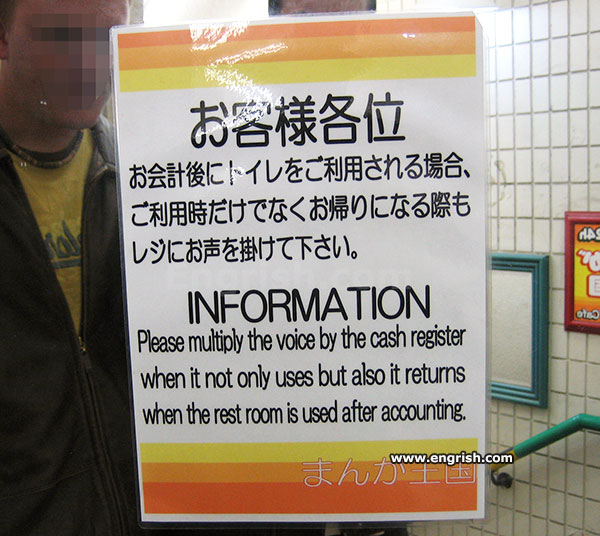
(source)
Read the rest of this entry »

